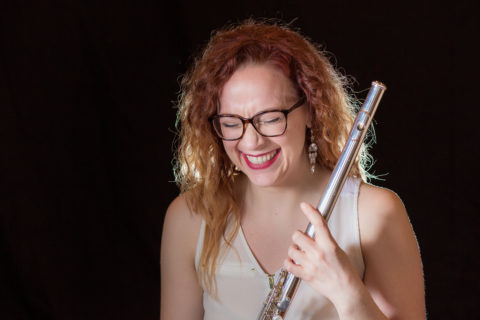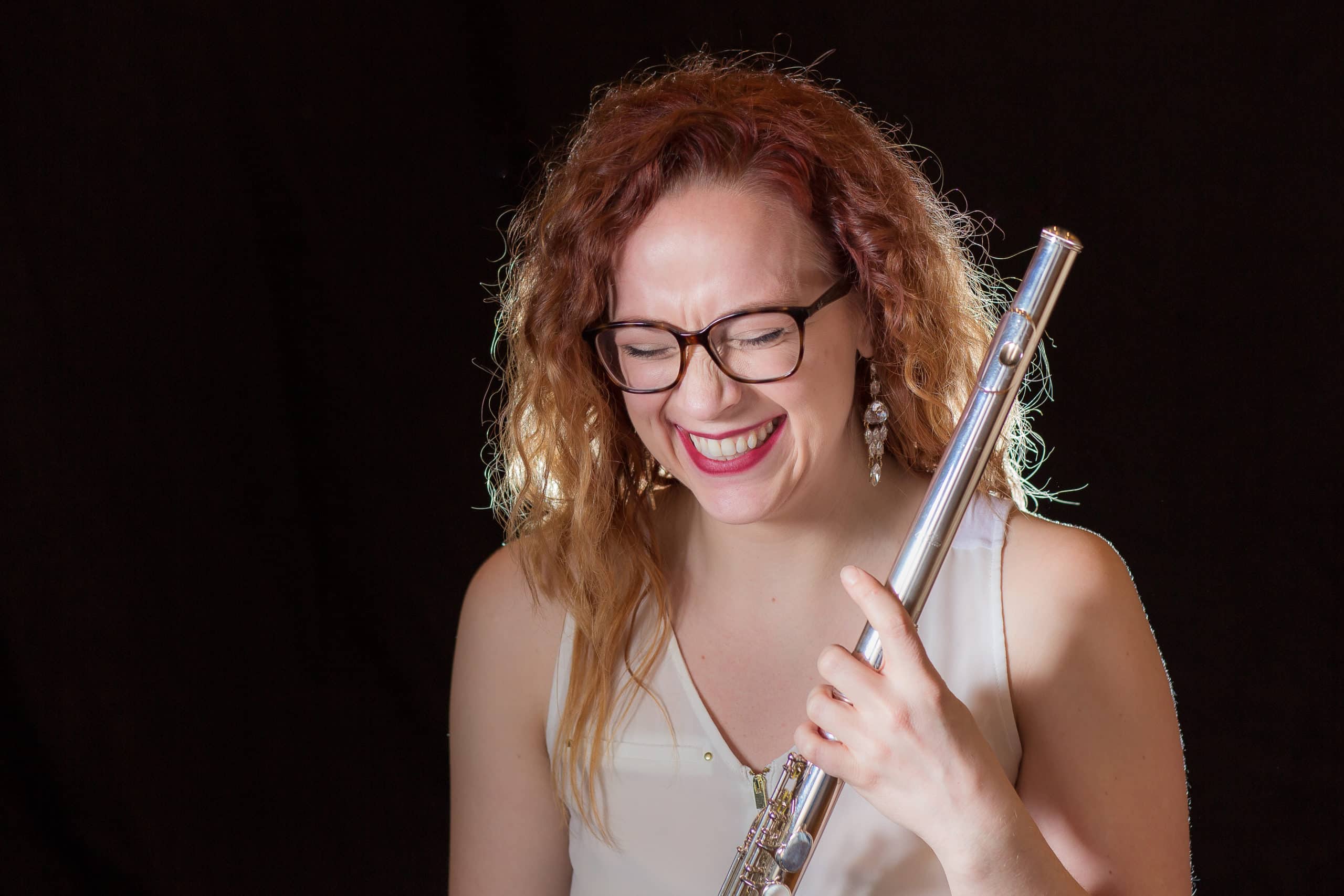CMPI parent Kenyetta Giles Haynes recently sat down to speak with Suzanne Hannau, CMPI flute mentor, to connect with her energy, enthusiasm, and effervescence.
How long have you been with CMPI and how did you get involved?
 This is my first year. I heard about CMPI from one of my private lesson students. During our last lesson she told me that a woman wanted to give her free CYSO tickets and a scholarship. I told her to take it. She went through CMPI and graduated last year. Alex Hoffman, a former mentor, who left CMPI when she received a fellowship to play with New World Symphony in Miami, recommended me. So I officially found out about CMPI when they called to see if I was interested.
This is my first year. I heard about CMPI from one of my private lesson students. During our last lesson she told me that a woman wanted to give her free CYSO tickets and a scholarship. I told her to take it. She went through CMPI and graduated last year. Alex Hoffman, a former mentor, who left CMPI when she received a fellowship to play with New World Symphony in Miami, recommended me. So I officially found out about CMPI when they called to see if I was interested.
How many students do you mentor?
I have four students and we meet once a month. I’m trying to do more in person. I’ve seen all of my students perform at least once. I have a senior whose heading off to Rice University in the fall so I’m trying to catch as many of her performances as I can.
Do you teach voice?
I recently closed my voice studio and handed those students off to some singer friends. I was feeling maxed out. My degrees are in flute and I take pedagogy very seriously. If I hear something happening with one of my flute students I may have six different exercises to address the issue, whereas with voice I don’t have as many tools.
How did you find time for this interview? I hear you have a busy schedule requiring superior juggling skills.
A lot of the other mentors will have similar schedules. I work at a church as the assistant director of music, conducting the choir, for my “day job.” I teach 17 private lesson students in my flute studio. I work part time as the soprano section leader for another church choir. On many summer weekends I get hired to sing or play at weddings and I also book gigs as a freelancer. I’ve subbed with some established as well as experimental ensembles like Zafa Collective and Unsupervised. I recently performed in the Folks Operetta’s “Die Kathrine”, an opera by Erich Korngold, and invite all of my students.
I think CMPI has a magic formula or algorithm for recruiting mentors. You all exemplify the life of a working musician and how a career in music can incorporate many things including health insurance. Right?
Yes, I love the variety, and yes, I have health insurance through my music day job. I graduated from DePaul with a BA and master’s degree in flute. In graduate school I landed my first theater gig as a pit musician but also as an actor on stage playing the pit music. I had to learn the role and also an Irish accent. I had so much fun and loved it. I’m also a certified early childhood music educator.
Wow. You do it all. What made you want to add being a CMPI mentor to your commitments?
I work with an organization called Tradewinds, which operates as a teaching collective traveling the globe using music as a way to teach other social and leadership skills. I’ve traveled to Haiti with them. Others have been with them on trips to Tanzania and Kenya. I wanted to find something in Chicago that had components of what I did with Tradewinds – mentoring, journeying with people, and helping them find their creative voice. I’ve found it with CMPI. I also believe in CMPI’s mission that orchestras need to change and reflect their communities. I want to do what I can to help.
Images
Suzanne Hannau
